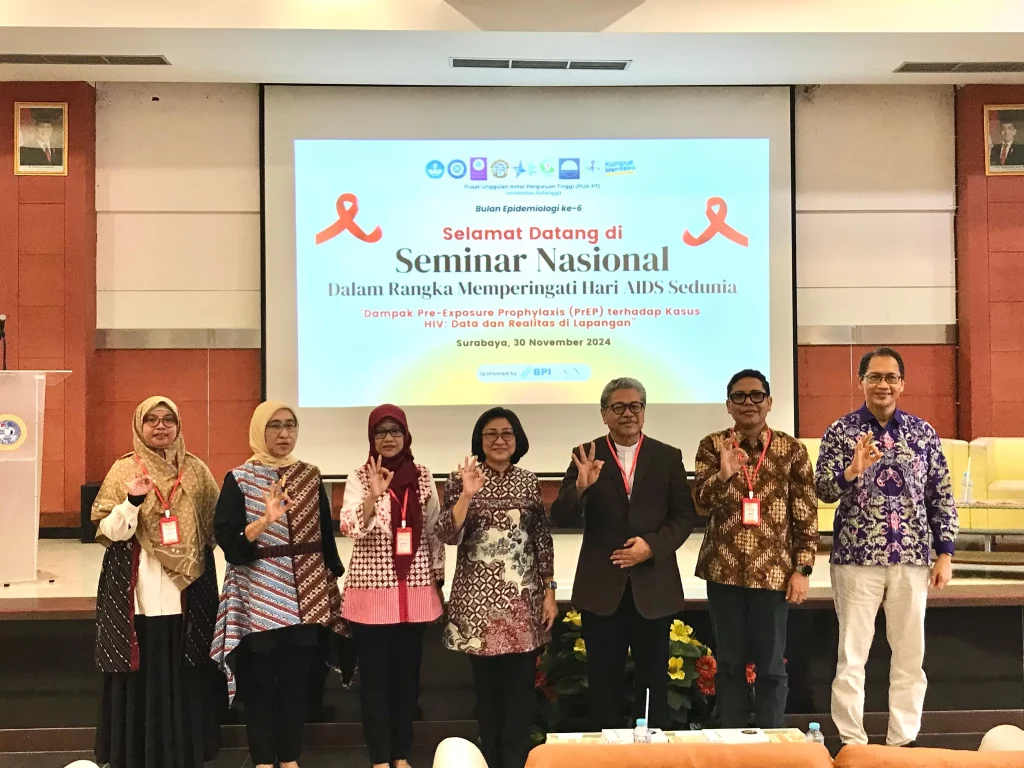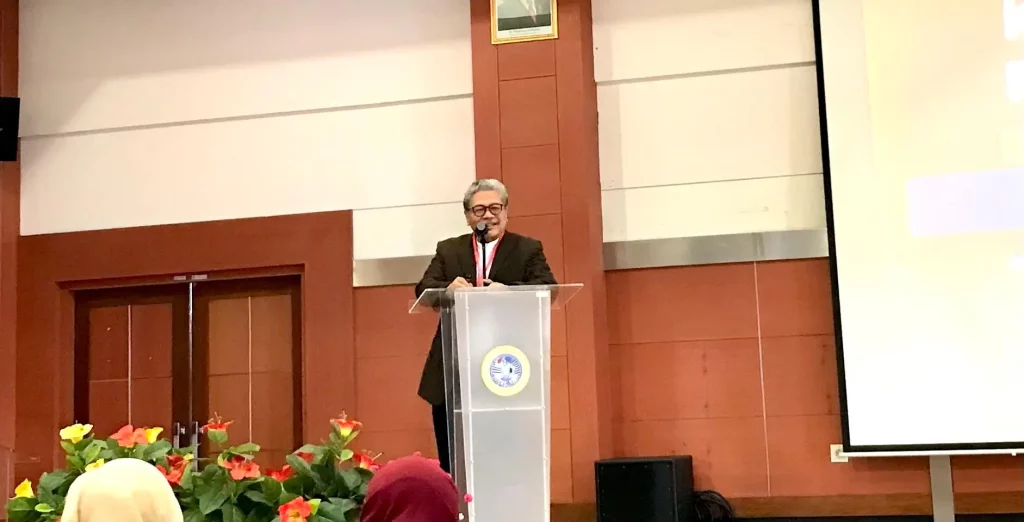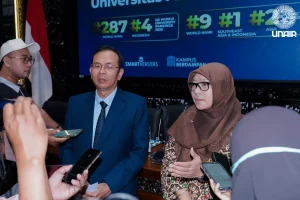UNAIR NEWS – In commemoration of World AIDS Day on December 1, the Tropical Disease Institute (LPT) at Universitas Airlangga (UNAIR) organized a national seminar titled The Impact of Pre-Exposure Prophylaxis on HIV Cases: Data and Field Realities.
The seminar took place on Saturday (November 30, 2024) at Airlangga University Hospital (RSUA), Campus MERR-C, and featured three distinguished speakers: Prof. Dr. Nasronudin, dr., Sp.PD-KPTI, FINASIM, Director of RSUA; Prof. Dr. Pande Putu Januraga, M.Kes., DrPH, from the Center for Public Health Innovation at Universitas Udayana; and Rosita Dewi Yuliandari, S.KM., M.Epid, Head of Disease Prevention and Control at the Surabaya Health Office.
Role of PrEP in HIV prevention
Prof. Nasronudin opened the seminar with an in-depth discussion of Pre-Exposure Prophylaxis (PrEP) from a clinical standpoint. He explained that PrEP is a highly effective preventive strategy for individuals at elevated risk of contracting HIV. The medication, taken routinely before exposure, blocks the virus from establishing an infection in the body.
“This drug works by blocking the HIV virus’s ability to replicate within the human body,” Prof. Nasronudin stated. He elaborated that, beyond prevention, PrEP offers valuable insights into the patterns of HIV epidemics in communities.
PrEP relies on antiretroviral (ARV) compounds such as Tenofovir and Emtricitabine. “These drugs form a barrier within human cells, preventing HIV from entering and multiplying,” he explained.
Prof. Nasronudin also highlighted a major challenge in HIV treatment: patient adherence to ARV therapy. Discontinuation of medication, he noted, significantly reduces the effectiveness of treatment. “For HIV patients who do not see a substantial increase in their CD4 cell count despite medication, this is often due to treatment dropout. Continuous education and supervision are crucial,” he emphasized.

Global goal: Three zeros
Beyond clinical perspective, Prof. Pande offered a public health perspective, focusing on the ambitious global Three Zero targets aimed at eradicating the HIV epidemic. These objectives include zero new HIV infections, zero AIDS-related deaths, and zero discrimination.
Despite the optimism these goals inspire, challenges remain. A 2022 report by Indonesia’s Ministry of Health revealed that 41% of people living with HIV had not started antiretroviral therapy, and societal stigma continues to hinder progress. ““We must confront the fact that condom usage, a key preventive tool, remains below 70%,” he added.
To advance these goals, PrEP has been identified as a strategic intervention in reducing HIV transmission. Currently, approximately 20,810 individuals across Indonesia are using PrEP. “The World Health Organization (WHO) strongly recommends this method, with evidence showing that daily PrEP use can reduce HIV transmission risk by up to 96%,” Prof. Pande concluded.
Author: Sintya Alfafa
Editor: Khefti Al Mawalia









